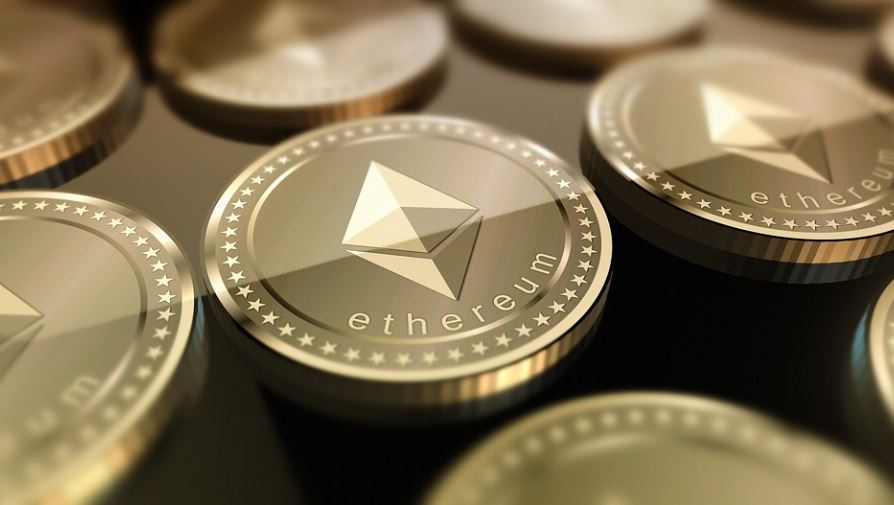
The Ethereum blockchain is notable for being the first to support smart contracts, allowing creators to build projects that investors and users can explore.
Smart contracts have also made the Ethereum trade easier for both brokers and investors.
What are smart contracts, and how are they built? What are the features that make smart contracts useful?
How do smart contracts work? This guide answers all there is to know about Ethereum smart contracts.
What are Smart Contracts?
Think of a smart contract as similar to a beverage vending machine or a public land phone; they only work when you drop coins, and the machine verifies your payment. Smart contracts work on the same logic.
A smart contract is an agreement recorded digitally on a blockchain and only executed when pre-set instructions (agreements, contracts) are fulfilled. The agreements are hardcoded to prevent unauthorized changes to arrangements.
Ethereum smart contracts are built on the Ethereum blockchain using Solidity, Ethereum’s native programming language.
Smart contracts are executed by the blockchain and do not require manual prompts. Once all agreements are fulfilled, the arrangements are irreversibly executed.
There are three categories of smart contracts based on their function:
* Smart Legal Contracts: These smart contracts are legally binding; all parties must fulfill their obligations as stated in the contracts or risk legal actions. Although the contracts are executed on blockchains, their status is legally recognized. Not all smart contracts have legal status.
* Application Logic Contracts: These contracts maintain contact with other smart contracts, enabling communication between contracts and devices.
* Decentralized Autonomous Organizations (DAOs): DAOs are blockchain communities that create and operate by specific rules. DAO rules are rigid, but members can propose changes for approval by the community members.
Ethereum smart contracts fall into one category and are used across industries.
How Do Ethereum Smart Contracts Work?
The process begins with building a contract. There are two ways to build smart contracts: writing codes or using digital solutions that do not require coding from the user end.
For the former, a Solidity developer writes the code, inputting the instructions and parameters for the contract. The developer ensures the codes cover everything from start to finish and that the smart contract is compatible with the Ethereum protocol.
For the latter, developers or anyone with the right technical skills leverage smart contracts technologies to build smart contracts without entering codes.
If Person A writes a smart contract to payout 100 ETH when Person B reaches a certain age and in 5 years, the contract is deployed on the Ethereum blockchain, and every node (computer) on the blockchain gets a copy of that contract.
The contract is immutable, so the blockchain will release the locked funds once Person B meets all conditions. When the contract is fulfilled and the funds paid out, the Ethereum network nodes record it, and the funds cannot be retracted.
Ethereum smart contracts are located at a specific Ethereum address and can send and receive transactions.
The Ethereum network charges Gas fees to deploy smart contracts, as they are transactions on the blockchain.
The steps in using smart contracts are as follows:
* Contract Agreement
* Instructions/rules/conditions
* Hard coding
* Blockchain deployment
* Contract execution
* Blockchain records
Features of Smart Contracts
All smart contracts are similar and have these features;
* Immutable: smart contracts are irreversible once deployed. The rules are typically unchangeable, except for DAOs which allow community members to propose and vote on rule changes.
* Public record: smart contracts are built, deployed, and maintained on blockchains. Once they go live, the records are broadcast to the network, and all transactions are publicly recorded. Smart contracts are also addressed; anyone can track inflows and outflows of smart contracts using the transaction hash ID. There’s no risk of permanent data loss as the information is duplicated multiple times.
* Automatic execution: smart contracts are executed once the conditions are fulfilled. They don’t require manual executions.
* Predictable outcomes: because smart contracts are executed only after conditions are fulfilled, the outcomes are predictable and independent of external factors. It’s a typical GIGO system.
* Visible terms: the terms of smart contracts are public and accessible to anyone. There are no hidden instructions, codes, or conditions that participants or community members are not privy to.
* Permissionless: once they go live, smart contracts do not require third-party permission or validation.
* Safety: Ethereum smart contracts are secured by cryptography and encrypted using Ethereum protocols.
* Speed: instant execution upon fulfillment ensures that smart contracts are fast and reduce the time it takes to prepare and execute traditional contracts.
These features make smart contracts useful for different purposes. Here are some uses of smart contracts:
Applications of Smart Contracts
Among other use, smart contracts are used in the following:
* Voting
* Electronic health management systems
* Financial trading
* Fundraising
* Supply chain
* Financial services, e.g., escrow
* Decentralized entertainment
* Regulatory compliance
Limitations of Smart Contracts
Smart contracts have a few limitations. These are:
* Immutable: the rigid nature of smart contracts means that they cannot be changed if errors are discovered.
* Loopholes: creators can exploit vague terms and instructions to gain access to funds.
* Adaptability and scalability: smart contracts exist on one blockchain at a time and cannot be scaled or adapted to another.
You can trade Ethereum and other cryptocurrencies while enjoying the benefits of smart contracts.
Before investing, ensure to study the terms, rules, and conditions of any smart contract. You can join smart contracts communities to propose changes and develop new rules.









